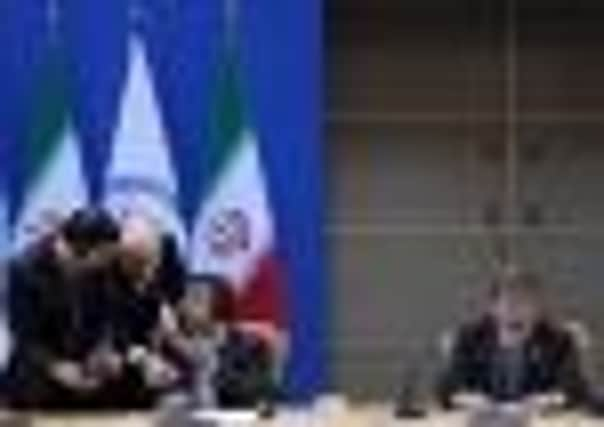Embarrassment for Iran as guests condemn its policies on Syria and Israel


Mohammed Morsi, Egypt’s new Islamist president, urged member states to support ordinary Syrians battling to overthrow the “oppressive regime” of Iran’s ally president Bashar al-Assad.
Ban Ki-moon, the United Nations’ secretary-general, then denounced his Iranian hosts for their “racist” rhetoric against Israel and “outrageous attempts” to deny the Holocaust.
Advertisement
Hide AdAdvertisement
Hide AdIran’s supreme leader, Ayatollah Ali Khamenei, opened the stormy two-day Non-Aligned Movement (Nam) summit with a speech blasting the United States as a hegemonic meddler and Israel as a regime of “Zionist wolves”. He also declared the Islamic republic would never seek nuclear weapons, which he branded a “major and unforgivable sin”.
But he insisted Iran would keep pursuing peaceful nuclear energy. “Our motto is nuclear energy for all and nuclear weapons for none,” he told some three dozen heads of state from the 120-member movement of mainly developing nations.
He also criticised the UN Security Council as an “illogical”, unjust and defunct relic of the past used by the US “to impose its bullying manner on the world”. The Council has an “utterly undemocratic structure” and is an “overt dictatorship”.
The Nam has long championed a reform of the UN to take power away from the Security Council and bolster that of the 193-member UN General Assembly, where its members are better represented.
With Mr Ban looking irritated in the audience, Ayatollah Khamenei continued: “They [Americans] talk of human rights when what they mean is western interests. They talk of democracy when what they have is military intervention in other countries.”
Next it was the turn of Mr Khamenei and Iran’s president, Mahmoud Ahmadinejad, to look stony-faced as Mr Morsi took to the podium. To their dismay, he likened the struggle of ordinary Syrians to that of Palestinians living under decades of Israeli occupation.
“The Palestinian and Syrian people are actively seeking freedom, dignity and human justice,” he said. The Syrian delegation, led by prime minister, Wael Nader al-Halqi, promptly walked out of the conference hall. They missed Mr Morsi adding that, “Egypt is ready to work with all to stop the bloodshed”.
He described the conflict in Syria as a “revolution” in the mould of the uprisings that ousted long-ruling autocrats in Tunisia, Egypt and Libya.
Advertisement
Hide AdAdvertisement
Hide AdThat narrative clashes with Iran’s assertions that the Syrian conflict is not part of the Arab Spring, but consists largely of foreign-backed “terrorists” acting on behalf of the US and its allies.
One Iranian state television channel mistranslated Mr Morsi’s remarks into Persian, giving the impression that he was actually speaking in support of Mr Assad.
Mr Morsi’s visit to Tehran was the first by an Egyptian leader since Iran’s 1979 Islamic revolution, signalling his determination to reclaim Egypt’s role as a key regional player. Like Mr Ban he went in defiance of Washington, which is trying to isolate Iran.
But the Egyptian’s leader’s speech in Tehran indicated he is committed to pursuing a fiercely independent path, belonging to no political axis in the region or beyond.